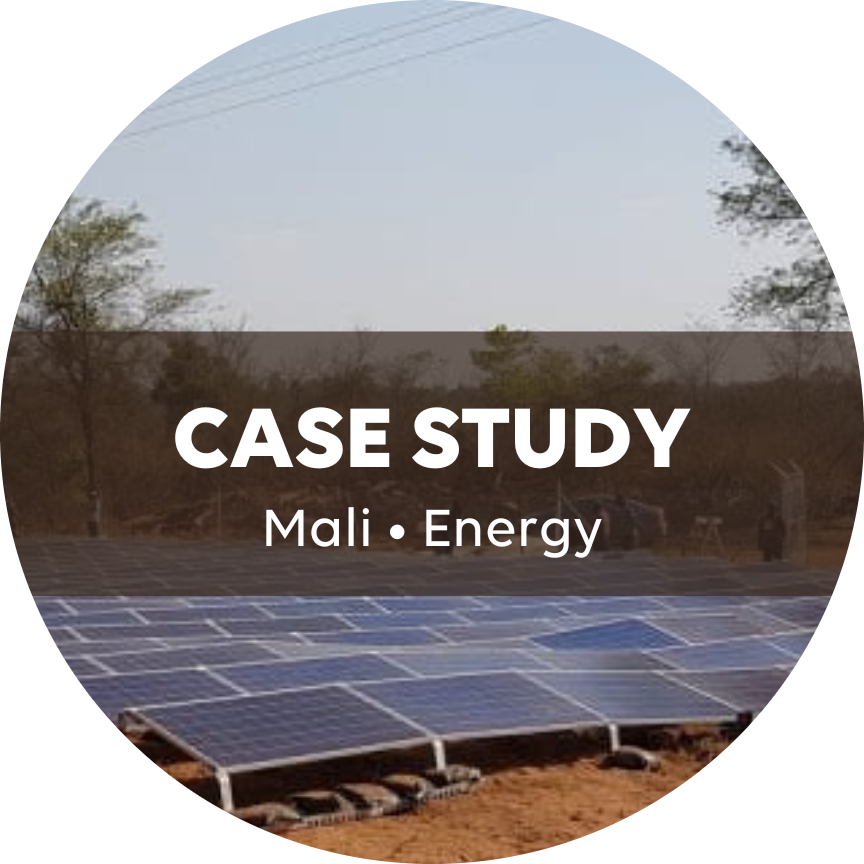Mali • Access to “clean” energy thanks to decentralised solar mini-grids
To address the problem of access to electricity, the Malian government has put in place a rural electrification strategy based on decentralised mini-grids, with the support of mechanisms such as the IRENA/ADFD Project Facility. The strategy has enabled the country to grow from 16 MW of solar capacity in 2013 to 100 MW in 2022.

In Africa, close to 600 million people have no access to electricity. In Mali, 83% of the population is faced with this problem, while the energy potential of the country is enormous. To remedy this, the Malian government has implemented a rural electrification strategy based on decentralised mini-grids. Thanks to this strategy, which was broken down into multiple projects such as those funded by the IRENA/ADFD Project Facility, the solar energy production capacity in Mali increased from 16 MW in 2013 to 100 MW in 2022. This project to install solar mini-grids is expected to benefit 123,000 people. These mini-grids also allowed access to drinking water, while also being levers for local socio-economic development and the attainment of the Sustainable Development Goals (SDGs).


